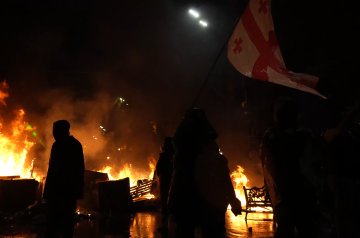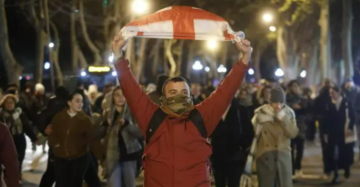In Georgia anti-government protests have been ongoing for over two months, with people in the streets of Tbilisi demanding the resignation of the ruling party "Georgian Dream" and a return to the country's Euro-integration course.
According to DW, despite arrests and violence from security forces, people continue to participate in marches and demonstrations. A notable feature of the protests in Georgia is the lack of clearly defined leaders. The majority of protesters gather spontaneously, organizing events through social media, including the Facebook group Daitove, which has over 250,000 members. This group announces all significant events and marches, which are then consolidated into mass actions.

Students play a vital role in the protests, actively organizing marches and even declaring strikes. For instance, in January, students from eight universities in Georgia spent the night at their campuses in protest against the authorities. Another characteristic of the current protests is the passive role of political parties. Opposition leaders do not organize the actions; they merely join them, often facing arrests and beatings. However, even among the protesters, there are doubts about their influence on the situation.

The protests in Georgia are marked by a high level of solidarity among participants. People assist each other: distracting the police, providing water and food, and offering medical aid. In particular, volunteers brought saline solutions for those affected by tear gas and helped those detained by security forces. There have also been unique actions, such as during the inauguration of the new president, when protesters played football in the square to emphasize that football is the only achievement of the new president.
Source: dw.